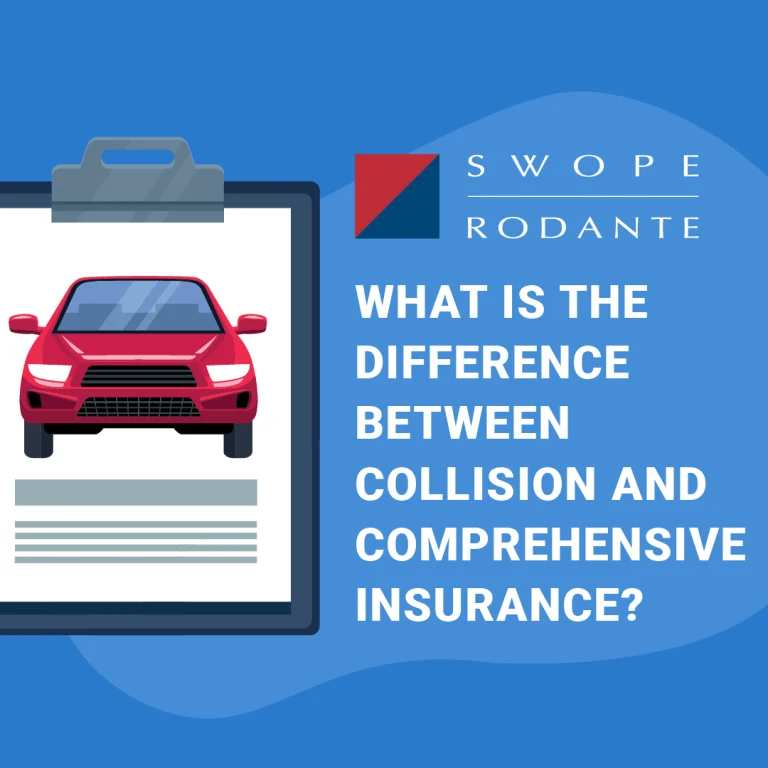
What is the Difference Between Collision Insurance and Comprehensive Insurance?
Collision insurance covers the cost of repairs if your vehicle is damaged in a crash, while comprehensive insurance pays for damage to your vehicle caused by events other than collisions.
Comprehensive coverage is typically used to pay for damage from incidents like natural disasters, fire, falling objects, theft, and vandalism.
In other words, collision insurance applies when you’re in a car accident, and comprehensive covers most other ways that your car can be damaged.
Most often, comprehensive coverage is used to pay for theft, vandalism, falling objects, fire, flooding, earthquakes, or running into an animal like a deer crossing the road.
If you back into a pole in a parking lot, get rear-ended at a stoplight, or sideswipe another car while changing lanes, your collision coverage would apply.
But if a tree branch falls on your car during a storm, it gets keyed, or is damaged in a hurricane or flood, your comprehensive coverage has your back.
What is Collision Coverage?
Collision insurance kicks in when your car hits, or is hit by, another vehicle or object.
It covers the costs to repair or replace your car, regardless of who was at fault in the accident.
This includes crashing into things like other cars, trees, guardrails, or buildings.
What Does Collision Insurance Cover?
This part of your auto policy kicks in when your vehicle collides with another vehicle, hits an object like a tree or pole, or if you’re the victim of a hit-and-run accident. It will pay out to repair or replace your car regardless of who was at fault.
Some common situations where collision insurance would apply include:
- You back into a pole or parked car
- You lose control and slam into a guardrail or concrete barrier
- Another driver runs a red light and crashes into your vehicle
- You sideswipe another car while changing lanes
- A hit-and-run driver slams into your parked car
Your collision coverage will pay to fix dents, replace broken glass, repair engine damage, and essentially restore your car to its pre-accident condition up to its market value.
However, you will need to pay your deductible amount out-of-pocket first, which ranges from $500-$1,000 on average.
What is Comprehensive Coverage?
Comprehensive coverage is a type of auto insurance that covers damage to your vehicle caused by events other than collisions.
- Vehicle theft or vandalism
- Natural disasters like hurricanes, tornadoes, floods, wildfires
- Falling objects like trees, rocks, or hail
- Civil unrest like riots
- Striking an animal like a deer
For example, if a tree branch falls on your car during a storm, your comprehensive coverage would pay out to fix the damage minus your deductible fee.
Learn More: Florida Bar Automobile Insurance Consumer Pamphlet














